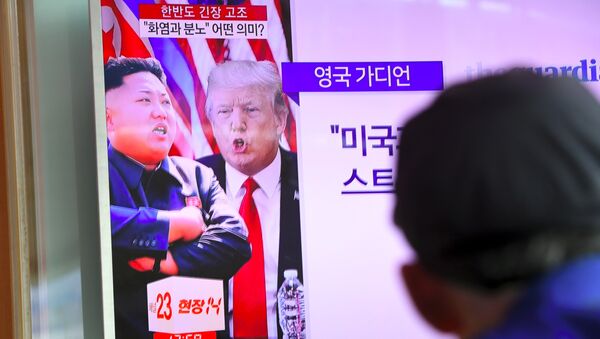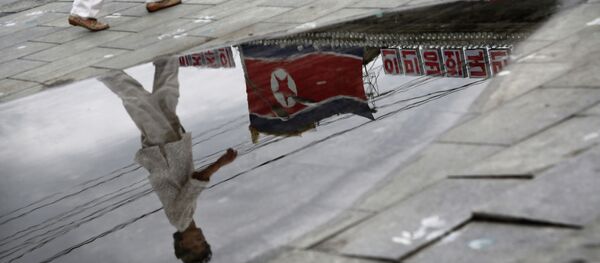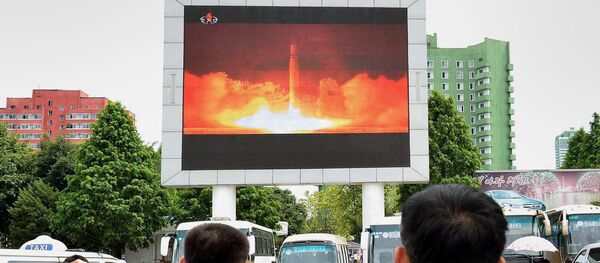After weeks of threats and posturing, Kim Jong Un has pulled back on his threat to test fire ballistic missiles off the coast of the US Pacific territory of Guam.
KCNA reported on Monday that Kim received a briefing that day about a plan to strike Guam. The week prior, North Korea threatened a missile test of four Hwasong-12 intermediate-range ballistic missiles (IRBM) not far from Guam.
REDUCING TENSIONS
Russia was well positioned to playing a moderating role because it had retained good diplomatic relations with Pyongyang and also enjoyed warm ties with China, historian and journalist Tim Shorrock said on Tuesday.
"I think Russia could play a positive role in the situation because it has a different relationship to North Korea than China as well as strong influence with the Trump administration," Shorrock, an expert on Korea and Northeast Asia said.
Russia had also supported the US drive to impose increased economic sanctions on North Korea through the United Nations Security Council, Shorrock recalled.
"By voting in favor of the UN Security Council sanctions, Russia too may have gained some influence with the US in the region," he said.
"The idea of outsourcing US policy on North Korea to China is ridiculous and foolish, in my opinion. As both China and Russia have said in recent days, the US must talk directly to North Korea, starting with their joint proposals for a ‘freeze for freeze,’" he said.
China was already playing a constructive role in seeking to reduce fears of war in the region, Shorrock observed.
"As for US and Chinese influence, I would say that North Korea’s decision to back down Monday from its threats to fire missiles at Guam was probably due in part to China’s statement… that it would impose the sanctions on North Korea that were recently passed by the UN Security Council," he said.
Shorrock also suggested that behind Trump’s heated public rhetoric towards both China and North Korea, he appeared to be cooperating more constructively with Chinese President Xi Jinping in efforts to resolve the crisis.
"The events also seemed to suggest that Trump and Xi probably had some back-channel discussions about North Korea over the past few days. So China does gain in influence," he noted.
NO MILITARY SOLUTION
Retired Brown University Assistant Economics Professor Barry Friedman told Sputnik that the United States had neither economic nor major strategic interests on the Korean peninsula and that unless Pyongyang attacked first, Washington had no grounds for launching any no-holds-barred war.
"We will not be able to make a good case for preemptive war on such a grand scale that would demolish the entire state leadership and military capability in North Korea. Our survival is not threatened," he said.
Friedman acknowledged that there was no safe, fast shortcut to resolve the impasse with Pyongyang and that long-term policies and patience were needed to address the issue.
"Provided no violent conflict erupts, then we can envision the next 10, or 50, 100 years where we need to coexist with a paranoid autocracy with increasingly capable nuclear weapons and delivery systems in North Korea," he said.
"We were lucky to constrain an overeager US Air Force and military-industrial complex in the 1950s, and then to avoid a mutual suicide with the Soviet Union," he said.
However, given sufficient time, the problem could be resolved by changes in within North Korea and by future technological developments, Friedman suggested.
"It is also possible to conceive that in 50 years the autocracy in North Korea will have rotted from within. Plus, defense against missile attacks could increase greatly," he concluded.
This week, US senior officials and North Korea have both scaled back their previous heated rhetoric.




